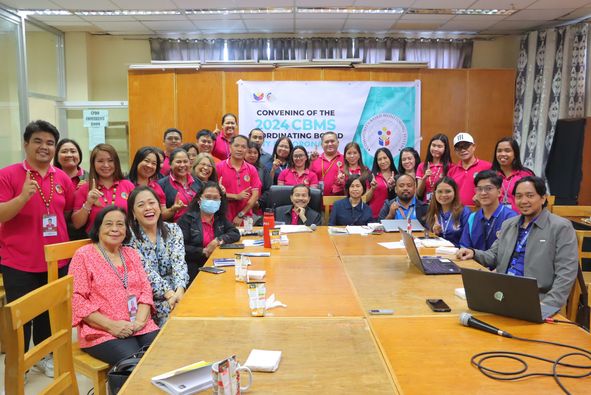27 barangays targeted for 2024 CBMS implementation

The Philippine Statistics Authority (PSA) South Cotabato is targeting to hold data collection in 27 barangays this year, following the national Community-Based Monitoring System (CBMS) rollout and the impending establishment of the City of Koronadal CBMS Coordinating Council.
By virtue of RA 11315, also known as the “Community-Based Monitoring System (CBMS) Act,” which was signed into law on April 17, 2019, the PSA is in charge of implementing the CBMS, while the city government is the primary data collection authority for planning, budgeting, program identification, and implementation.
CBMS is a technology-based system for collecting, processing, and validating important disaggregated data that will be used by the government to target programs and projects aimed at reducing poverty and promoting economic development. It is necessary to generate updated data in order to target beneficiaries. With the system, it will be easier to conduct a more comprehensive poverty analysis and prioritize needs.
At the January 16 meeting, City Mayor Atty. Eliordo U. Ogena pledged his administration’s active collaboration and full support for the Philippine Statistics Authority. According to the Local Chief Executive, the data and information gathered is critical for local planning and program implementation. He also thanked PSA for funding the program’s implementation with only a minimal government counterpart.
As a statistical activity, the CBMS entails a census of households conducted by local government units (LGUs) with community participation using data from accelerated poverty profiling systems. The CBMS will generate data in the form of a compendium of localized facts, figures, and maps on various aspects of poverty, including health, nutrition, water, sanitation, shelter, education, income, employment, security, and participation.
“The ultimate role of the CBMS is to come up with a list of registries. We will train the LGUs on how to process the data”, says Ma. Eileen A. Berdeprado of the Provincial Statistical Office of South Cotabato.
Furthermore, the CBMS’s goals also include determining the extent of poverty at the local level, developing appropriate plans and programs to address problems, laying the groundwork for rational resource allocation, identifying eligible beneficiaries for targeted programs, and monitoring and assessing program and project impact. Its scope and coverage include updating the social registries of national government agencies, particularly the Department of Social Welfare and Development. The “Listahanan” poverty database program, established by the Department of Social Welfare and Development (DSWD) as a primary reference for identifying potential beneficiaries of social protection programs and services, will expire as CBMS takes effect in 2024. With CBMS as the primary driver of a database, LGUs will be able to make it more responsive.
On the other hand, CBMS Coordinating Council or Coordinating Board is responsible for issuing communications directives, instructions, and circulars to cooperate, mobilize, and provide support and assistance to the CBMS operation. The board is also tasked with assisting in the implementation of a massive publicity and information campaign, as well as facilitating enumeration in government-owned and private institutions and other hard-to-reach areas. The council was also responsible for providing transportation facilities for enumeration personnel as well as transporting CBMS forms, supplies, and materials.
In the coming days, the Local Chief Executive will issue an Executive Order establishing the CBMS Coordination Council, Supervisors/Coordinators, and Data Processors with specific functions.
Meanwhile, the 2024 CBMS implementation will cover all 1st to 6th income class cities and municipalities in the country, including those with no income classification yet.
Moreover, training on data collection, geotagging, and map data processing is scheduled to begin in the third week of April and continue through the fourth week of May in preparation for the City of Koronadal’s anticipated 2024 CBMS.
The collaboration between the PSA and the city government of Koronadal, in pursuit of social transformation and community development through statistical operations, demonstrates the government’s commitment to achieving inclusive and sustainable development at the grassroots level. Furthermore, the collaborative synergy hopes to create a ripple effect that aligns with the country’s efforts to alleviate poverty and promote socioeconomic growth.